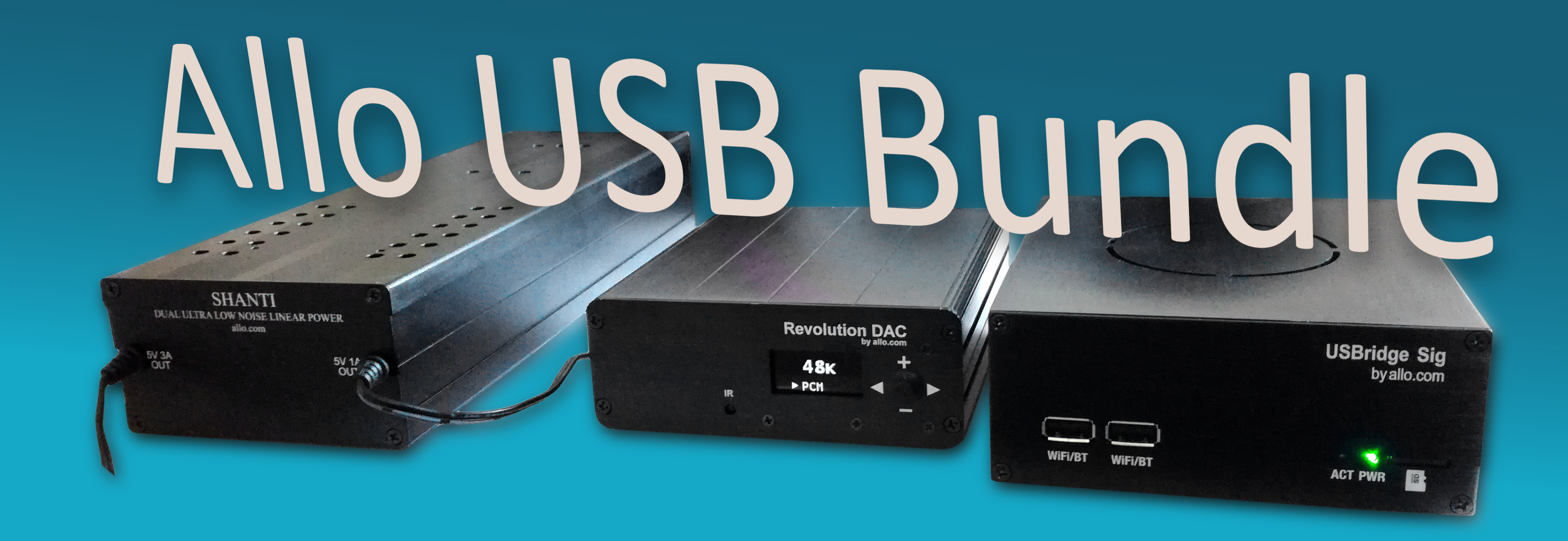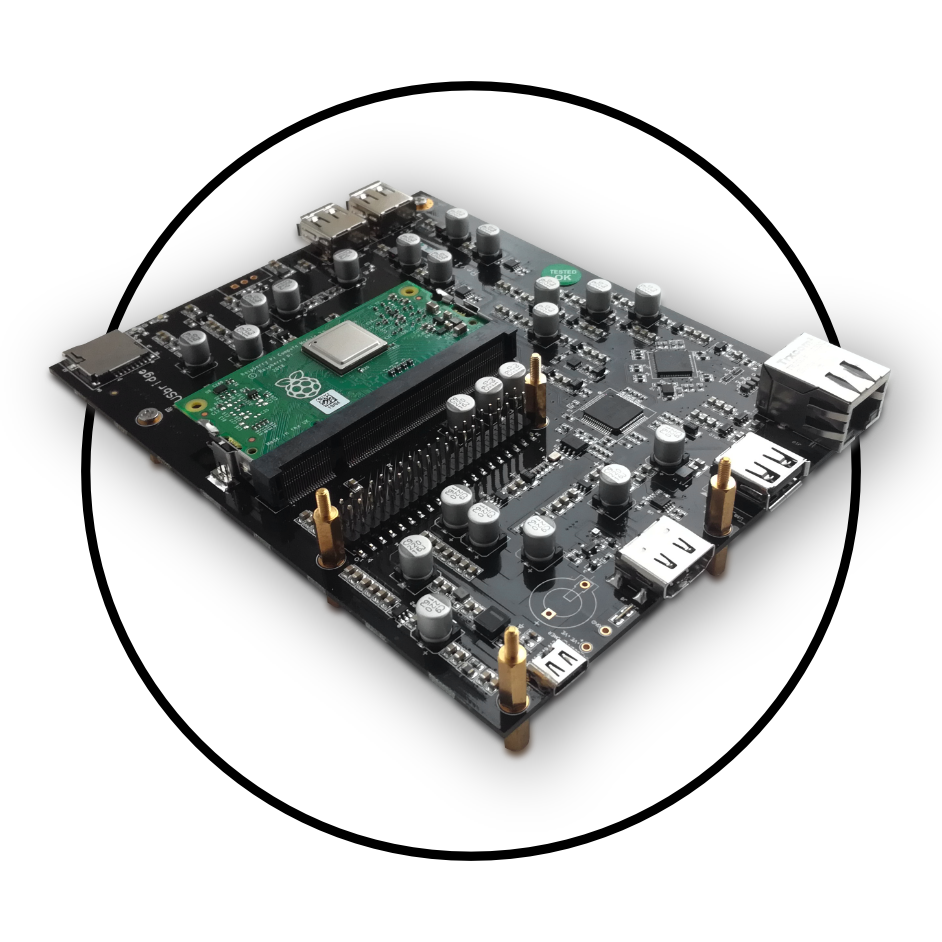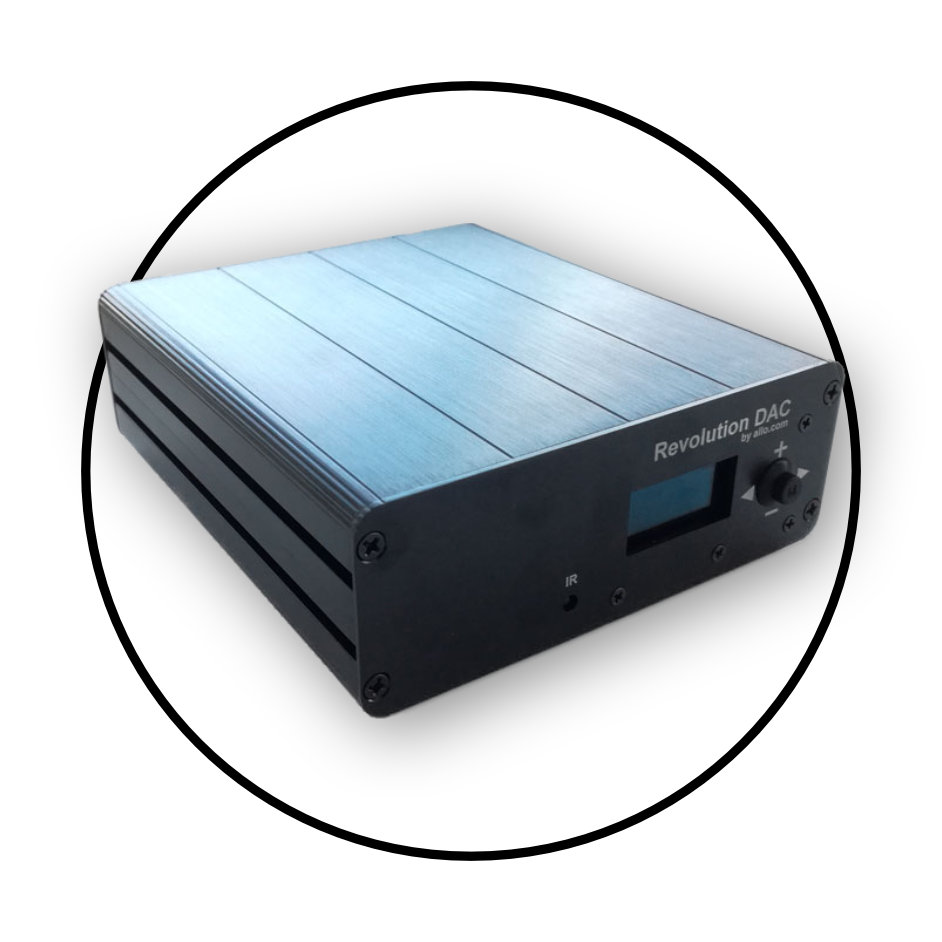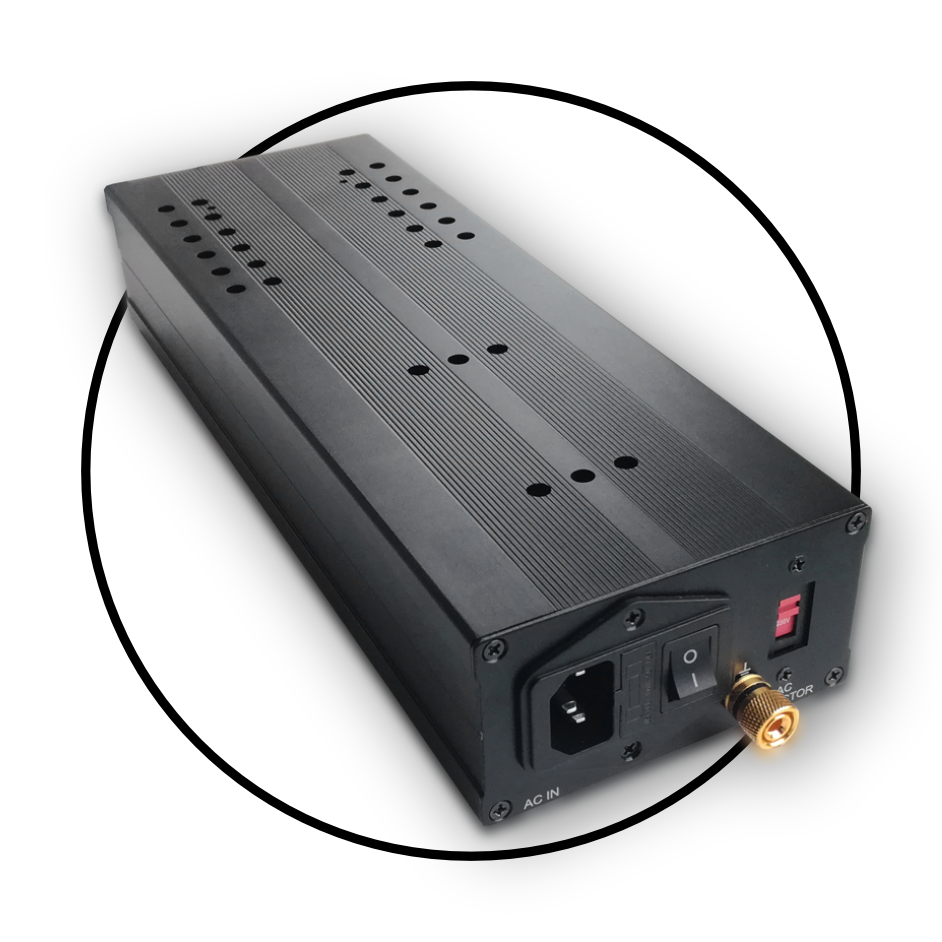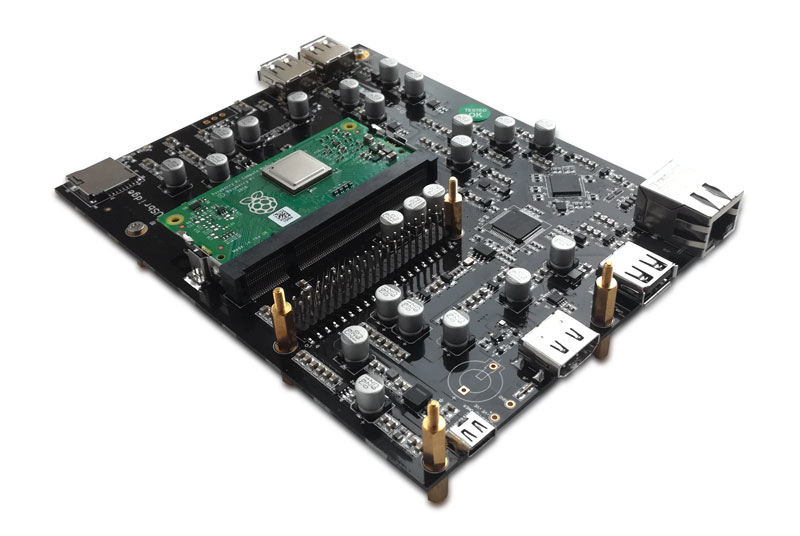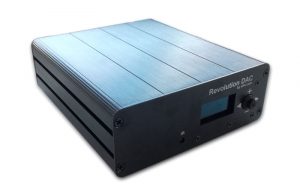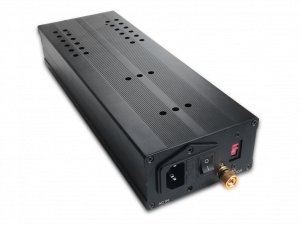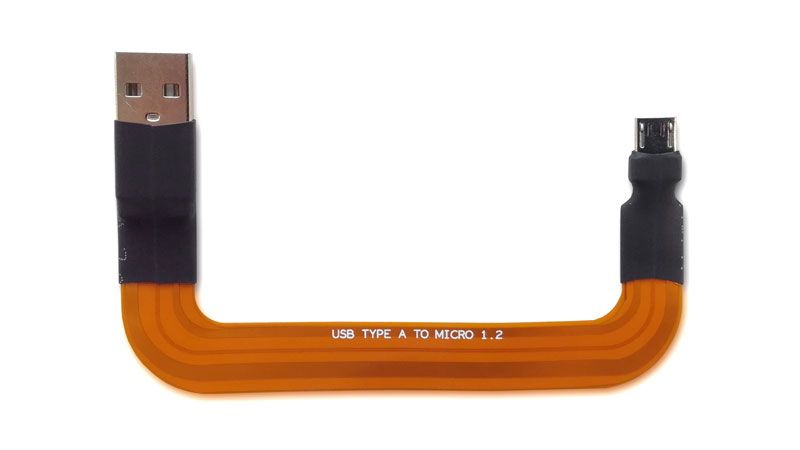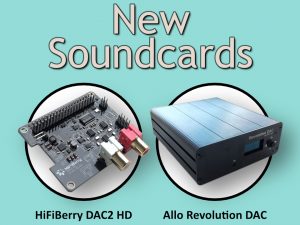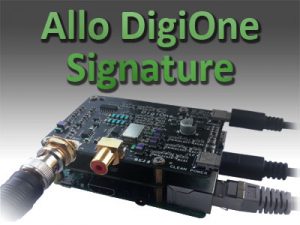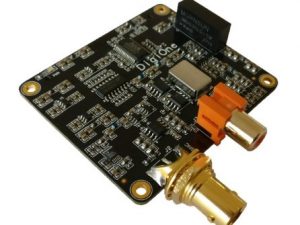In this blog-article we present you the Allo USB Bundle, which consists of the Allo USBrdige Signature, the Revolution DAC, aswell as the power supply Shanti. We will first introduce you to the individual components and then a short instruction how to set up the system.
Let’s take a look at the technical details of these devices:
Allo USBridge Signature
The Signature has a built in Raspberry Pi 3+ Compute module, so it can be operated as a Raspberry Pi with the difference being that the circuit board and the built in components are, in comparison to „normal“ Raspberry Pis, specifically optimized for audio playback.
The focus of the device is to lower the noise on USB bus with USB hub IC (TI) and a separated Ethernet to USB IC (Axis).
In total, USBridge Sig uses more than 30 LDOs, to lower additional noise coming from USB.
Allo Revolution DAC
The Allo Revolution DAC is a USB DAC that offers the best sound quality and gives audiophile enthusiasts the choice to match the converter perfectly to their own system and music. The ES9038 chip, its heart, is one of the best chips from ESS. The circuits of ESS are known for their high sound quality. It uses the 32bit HyperStream DAC technology and supports samplerates up to PCM 384kHz, DSD512.
With its help, the Revolution reaches excellent -114.5dB for THD+N; the THD ratio reaches an extraordinary -123dB. Also remarkable: the distortion factor does not increase over the audible frequency range, which clearly contributes to a more pleasing sound.
The Revolution’s special design allows you to choose whether it should sound DAC neutral or ES9038-characteristically bright:
OSF Bypass
The oversampling filter can be switched off. Some listeners feel this improves the sound quality. The oversampling filter (filter on = bypass off) is usually used to reduce aliasing. Note: If the filter is switched off (bypass = on), the hardware volume control is no longer usable.
H2/H3 Harmonic Control
Harmonic components of THD can be tweaked (increased) from the “best THD value”. Why? Simply because harmonic components are known to introduce a euphonic effect. (Hence, increased harmonics sound better in our ears, even though the measures are slightly worse).
Jitter Reduction
Of course, the Revolution DAC has two separate clocks to provide the perfect clock for most playback formats and sample rates. Additionally, it has a switchable jitter suppression.
POPMUTE
Disturbing crackling, which could occur when starting/stopping playback or changing the sample rate, is effectively suppressed via POPMUTE. The control time of POPMUTE can be selected in 6 steps in the range of 0 – 1/10 second.
Filter characteristics
The filter characteristic is adjustable in seven variants:
- Linear phase fast roll-off filter
- Linear phase slow roll-off filter (best THD+N default)
- Minimum phase fast roll-off filter
- Minimum phase slow roll-off filter
- Apodizing fast roll-off filter
- Corrected minimum phase fast roll-off filter
- Brick wall filter
Allo Shanti
The new Shanti power supply from Allo with two outputs (5.2V/3A and 5.2V/1.2A) for separate powering of the Raspberry Pi and a high-quality sound card with matching adapters for every setup. Ideal for Allo BOSS and Allo DigiOne Signature.
With the use of a R-Core transformer, the power supply takes care of noise, electromagnetic and common-mode interference.
The transformer has two outputs (galvanically isolated) of 5.2V/3A and 5.2V/1.2A, so you can power multiple devices (RPI 2, 3 or 4 including DAC). In addition, Allo has implemented independent filtering for each rail:
First a capacitor to reduce the 50/60 Hz noise, then an active filter followed by an LDO (Low-dropout Regulator) to keep the voltage stable. Since LDOs have poor transients and impedances, Allo has installed another active filter (with good transients) and capacitors with more than 15,000 uF, but most importantly, supercapacitors at the output. The final power comes from the supercaps.
The Allo Shanti has an AC line filter. The AC side is grounded to the chassis. In internal tests (in a realistic environment), the manufacturer measured around 80nV (0.08uV noise from 0 to 20 kHz) – comparable to the noise of batteries.
Aufbau und Einrichtung des Systems
- Remove the screws from USBridge case, put the Allo USBridge on the spacers. Afterwards, put the case components back together.
- Put the microSD-card with the Max2Play image into the SD-card slot of the USBridge and connect it to the internet through a LAN cable.
- Connect the Allo Revolution DAC to the USBridge with the Allo Flex cable (seen on the picture).
- Now connect the 1A output from the Allo Shanti power supply into the Revolution DAC (with USB-C adapter) and 3A the output into the USBridge.
- Activate the power switch on the Shanti to start the devices.
- Set up Max2Play through the webinterface.
- Select „USB soundcards“ as soundcard in the „Raspberry settings“. Click save to start the installation (can take around 5 minutes). Then reboot the device.
- Then select „sysdefault … Allo Revolution“ in the additional settings tab in Squeezelite.
- Now you can start the audio playback through the Revolution DAC.
- You can control the DAC with the remote (seen on the picture).

